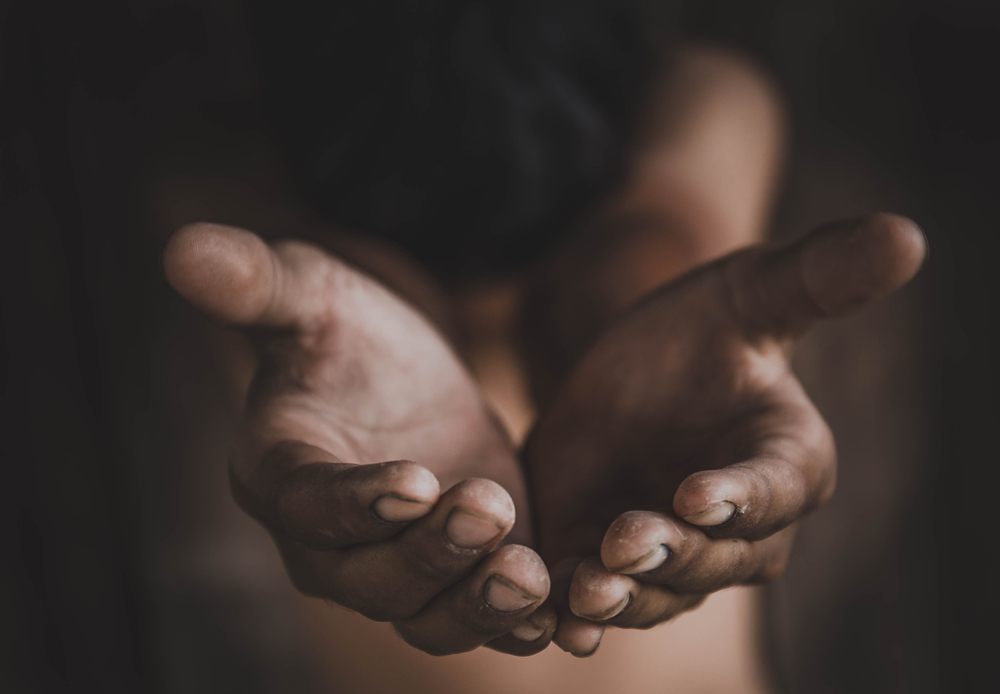With folded hands, 11-year-old Raman (name changed) said he had not eaten for three days and appealed to authorities to provide at least drinking water, if not food, to him and his three younger siblings, who have not had a proper meal since the nationwide lockdown was enforced on March 24 in view of the coronavirus outbreak.
Raman sent the message in a video clip to CHETNA (Childhood Enhancement through Training and Action), an NGO working for street children. According to its director Sanjay Gupta, they have received many such videos since the lockdown was enforced.
India is currently under the biggest lockdown in its history with around 130 crore people asked to stay indoors in view of the coronavirus outbreak, which has claimed 377 lives and infected more than 11,000 people in the country so far.
The government has issued strict directions, restricting the movement of people and ensuring that they maintain social distancing. All non-essential movements have been curbed and people asked to self-quarantine themselves.
But self-quarantining is a luxury not everyone can afford, especially the street children, who make their living by selling balloons, pens etc. at the traffic signals.
'The street children are the most vulnerable population who do not have savings to last them even for a day and are completely dependent upon external help. They are invisible children, who live in areas that are not easily accessible,' Gupta said.
Recalling his experiences during the first three days of the lockdown, he said that was the 'worst' phase when they received messages from these children crying of hunger.
'The children contacted us crying and saying help us, we have not eaten anything. The government sprung into action and started giving helpline numbers and we started passing the numbers to them because we do not have (curfew) passes as we do not come under essential services. That system started working and food reached them, but not in enough quantity,' Gupta said.
He added that most of these videos came from Lucknow, Ghaziabad and Delhi, where the NGO's network is active.
'We made small groups of these street children earlier and have their mobile numbers with us. Do not think that they are street children so they do not have mobile phones. In a group of 12-15 children, one of them will have a mobile phone, so we have established this connection and managed to reach out to 600-800 children in Lucknow, Ghaziabad and Delhi till now. These are the children who informed us of their plight,' Gupta said.
He said these children prefer to share videos as they feel that they can express themselves better this way and also show their living condition.
In another video, Binny, 12, (name changed) says she has seen a lot in her life, right from an abusive father to abject poverty, but this lockdown has shaken her and appealed to authorities that regular meals be given to her, especially at a time when she is not able to provide for her family.
In many such video clips received by CHETNA, children are seen appealing for food and other essentials, which they say are not reaching them in sufficient quantity.
The government has provided ration and cooked food facilities in many areas, but Gupta says these children need to be fed thrice a day.
'One of the biggest issues we are facing is that the volunteers and common people who are distributing food think that supplying it to the children once a day is enough, but they need to be fed thrice a day,' he said.
According to Gupta, another major cause of concern is regarding the mental health of these children as they are locked in a small room the whole day with several other family members, who are mostly bickering and abusing each other.
To ensure the mental well-being of these children, they are using innovative ways to keep in touch with them, he said.
'We send them messages and TikTok videos about how to keep safe and what precautions they must take,' Gupta added.
According to some NGOs, the number of children on the streets of India can be as high as 20 lakh and around two lakh of them live in the national capital.
Gupta urged the state governments to form small groups to look into the needs of street children during the lockdown.











